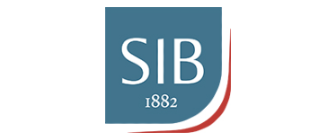Italy is among the first European states to adopt a specific law on artificial intelligence; the new rules make reference to the European Union’s AI Act but also set forth national provisions specifically concerning the use of AI systems in several sectors, as well as copyright and deepfakes; here are some of the main changes introduced by the new law.
New Italian rules on artificial intelligence, introduced by Law No. 132 of 23 September 2025, have taken effect on 10 of October 2025.
The law refers to the European Union’s Ai Act, in force since 1 August 2024 (see relevant news item), which is considered the world’s earliest legislation on the subject.
In line with the EU’s AI Act
In keeping with the European AI Act, the new Italian law lays down certain national principles referring to the research, development, adoption and use of AI systems; in particular Article 3 establishes that the research, testing, development, application and use of AI systems and models for general purposes must take place in compliance with the freedoms provided for by the Italian Constitution, European Union law and the principles of transparency, proportionality, security, protection of personal data, confidentiality, accuracy, non-discrimination, gender equality and sustainability.
AI general purpose systems must be developed and applied with respect for human autonomy and decision-making power, ensuring human surveillance and intervention. The law also provides that the use of AI must not prejudice the democratic development of institutional and political life.
However, Law No. 132/2025 is not to be considered a measure implementing the European AI Act; it has a different scope, inter alia because it regulates the use of AI systems in several specific areas, from health to public administration, from intellectual professions to justice. Notably, Article 15 stipulates that where AI is employed in judicial activity, the judge is still responsible for any decision concerning interpretation and application of the law, the evaluation of the facts and the issuing of orders.
The law charges the government with issuing, within 12 months of its entering into force, special decrees to regulate the use of AI systems in the various sectors.
Copyright protection
The new law also changes Italian Copyright Law; article 1 is amended as follows “Works of human ingenuity of a creative nature which belong to literature, music, the figurative arts, architecture, theatre and cinematography, whatever their mode or form of expression, are protected […] even where created with the aid of artificial intelligence tools, as long as they are the result of the intellectual work of the author.”
An Article 70-septies is added providing that reproductions of and extractions from works or other materials available on the internet or in databases – that have been accessed lawfully for the purposes of extracting text and data through artificial intelligence models and systems, including generative ones – are allowed in accordance with the provisions of Articles 70-ter and 70-quater, meaning that the text and data mining exception (TDM) applies as introduced by EU Directive 2019/790 (known as “Copyright Directive”), implemented in Italy by Legislative Decree No 177/2021.
Changes in the Italian Criminal code
Lastly, amendments of the Italian Criminal Code include the introduction of the use of AI to the aggravating circumstances of some crimes, as well as the addition of a new article that puts in place criminal penalties for the authors of deepfakes and of artificial manipulations of financial markets created by employing AI systems.


